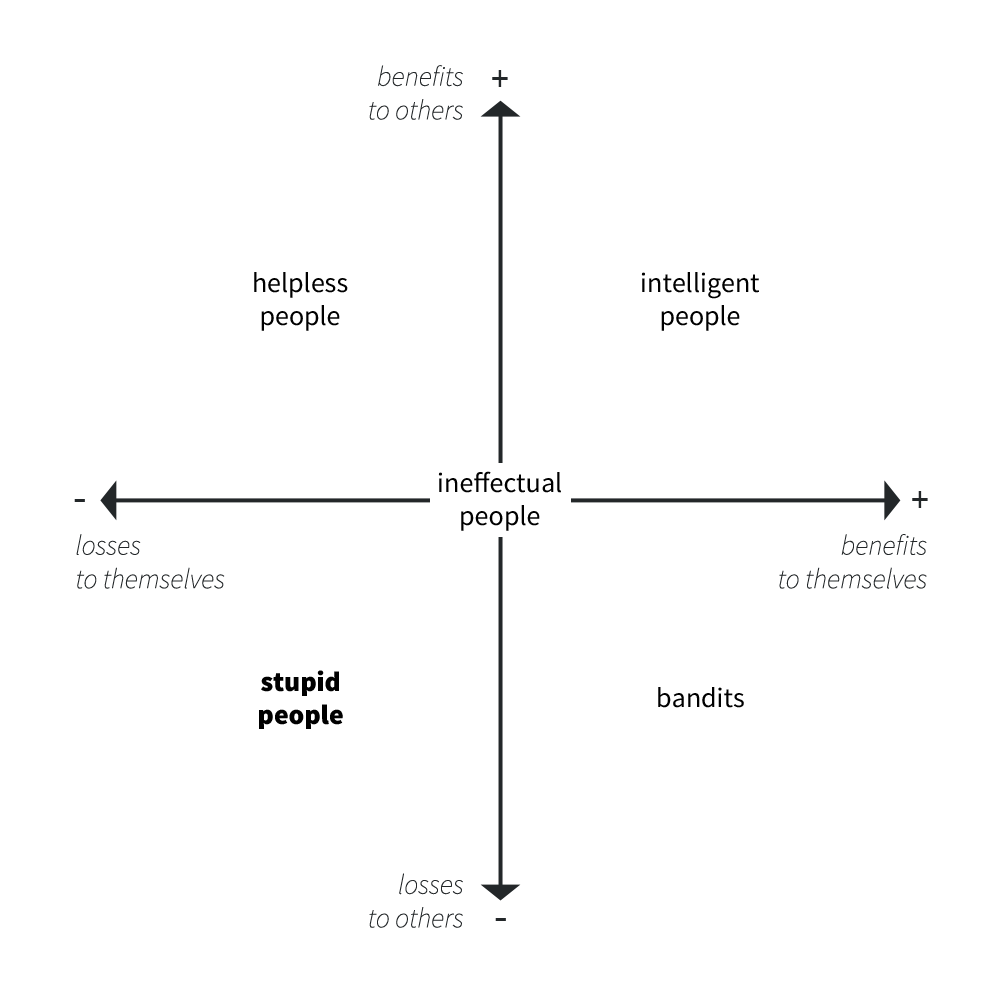The Five Laws of Stupidity
In 1976, the economist and historian Carlo M. Cipolla (1922–2000) wrote an essay titled “The Basic Laws of Human Stupidity” where he defines the five “laws of stupidity” as:
Always and inevitably everyone underestimates the number of stupid individuals in circulation;
The compilers of the Testament were aware of the First Basic Law, and they paraphrased it when they asserted that:
“stultorum infinitus est numerus”
But they indulged in poetic exaggeration. The number of stupid people cannot be infinite because the number of living people is finite.
The probability that a certain person will be stupid is independent of any other characteristic of that person;
A stupid man is born a stupid man by an act of Providence.
A stupid person is a person who causes losses to another person or a group of persons while himself deriving no gain and even possibly incurring losses;

Figure 1: An imaginary dissection
Our daily life is mostly made up of cases in which we lose money and/or time and/or energy and/or appetite, cheerfulness, and good health because of the improbable action of some preposterous creature who has nothing to gain and indeed gains nothing from causing us embarrassment, difficulties or harm.
- Nonstupid people always underestimate the damaging power of stupid individuals;
- A stupid person is the most dangerous type of person.